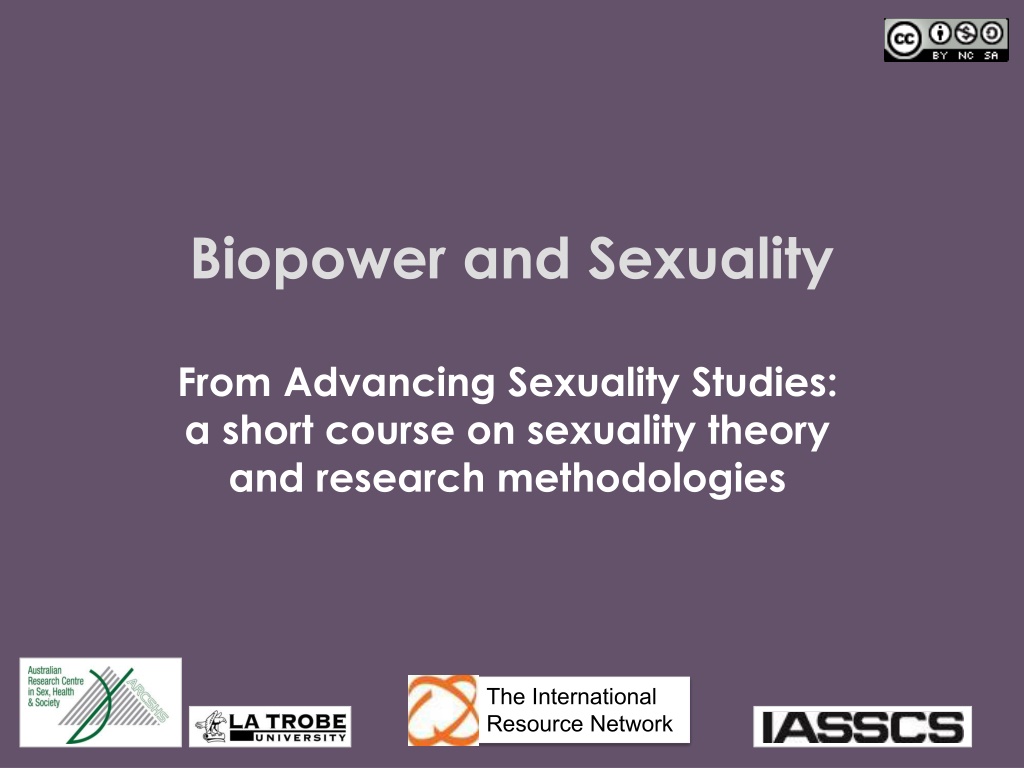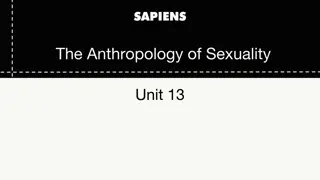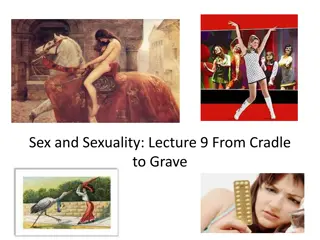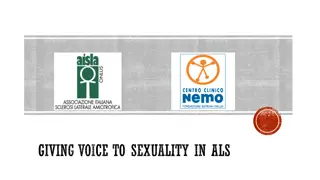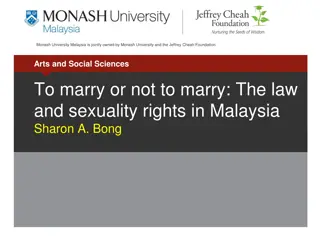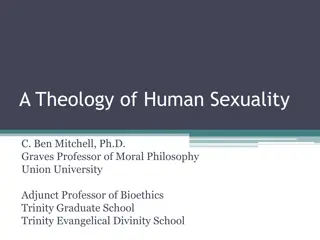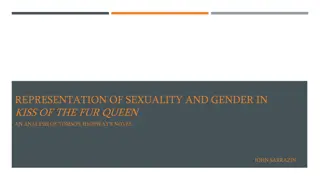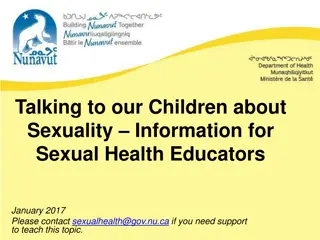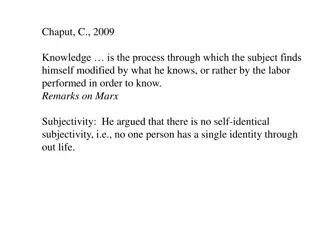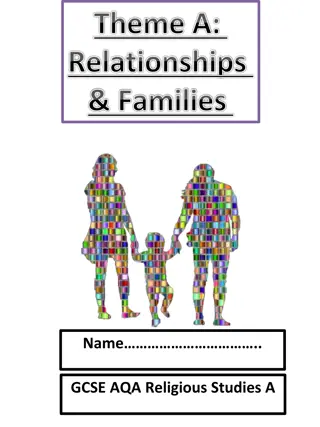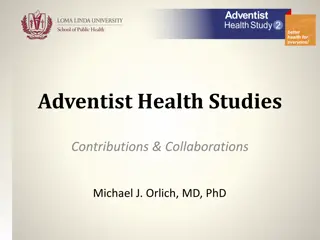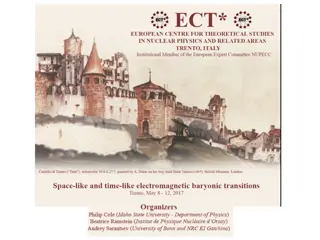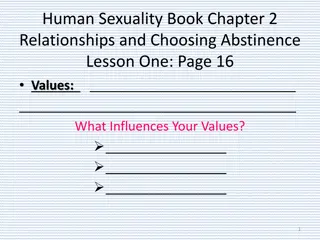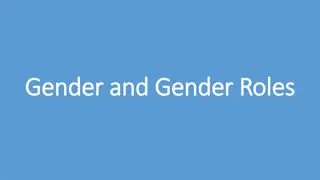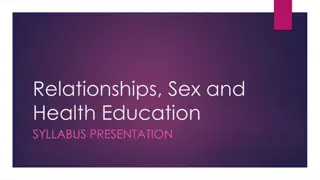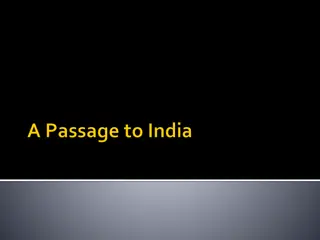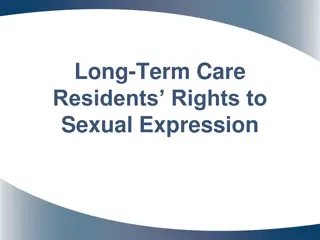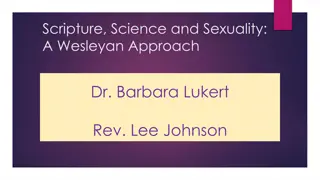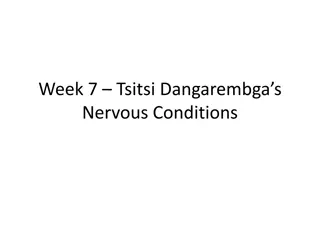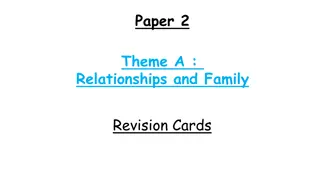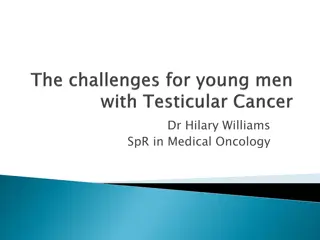Understanding Biopower and Sexuality in Critical Sexuality Studies
Explore the concepts of biopower, governmentality, and technologies of the self in Critical Sexuality Studies. Discover how these concepts challenge traditional assumptions about sexuality and empower individuals to critically analyze and contest power structures in relation to race and ethnicity, particularly in the Caribbean context.
Download Presentation

Please find below an Image/Link to download the presentation.
The content on the website is provided AS IS for your information and personal use only. It may not be sold, licensed, or shared on other websites without obtaining consent from the author. Download presentation by click this link. If you encounter any issues during the download, it is possible that the publisher has removed the file from their server.
E N D
Presentation Transcript
Biopower and Sexuality From Advancing Sexuality Studies: a short course on sexuality theory and research methodologies The International Resource Network
Developed by: The Caribbean International Resource Network Presented in collaboration with: The Institute for Gender & Development Studies at the University of the West Indies, St. Augustine (Trinidad & Tobago) With funding from The Ford Foundation & the International Association for the Study of Sexuality, Culture and Society (IASSCS) Available under an Attribution, Non-Commercial, Share Alike licence from Creative Commons 2 2
Schedule Learning activity Time allowed Introduction & aims 5 mins Session 1. Biopower, govermentality, and technologies of the self Key concepts: lecture & brainstorming Group work & discussion Summary 80 mins 40 mins 35 mins 5 mins 115 mins Session 2. Biopwer and postcoloaniality: Intersecting sex, race, and ethnicity Lecture Screening Small group work brainstorming & discussion Lecture Pre-reading review pair work 15 mins 30 mins 20 mins 10 mins 40 mins Session 3. Contesting biopower: Caribbean expressive culture Mini-lecture & listen to Discourse on the Logic of Language Small & large group discussion 55 mins 20 mins 35 mins Conclusion 30 mins Total 285 mins 3 3
Module aims To introduce participants to the concepts of biopower, governmentality and technologies of the self & how these might inform their own research or work. To encourage participants to apply these concepts in relation to discourses of race and ethnicity. To encourage participants to critically reflect upon how these concepts have been both understood and contested by Caribbean intellectuals and writers. 4
Participants will: Discuss the implications of biopower as a mode of regulating sexual behaviours and knowledge. Discuss the implications of self-regulation in sexual and reproductive health and HIV care Apply Foucauldian approaches to the analysis of sexuality as it intersects with race issues in the Caribbean. Explore the possibilities for disrupting and contesting biopower in Caribbean expressive cultural forms. 5
Session 1. Biopower, governmentality, and technologies of the self 6
What is biopower? Biopower, governmentality and technologies of the self: influential concepts in Critical Sexuality Studies Derived from work of Michel Foucault; questioned prevailing (Freudian) assumptions about sexuality as: Natural Innate An expression of individual instinct or desire Focus on power and social relations 7
What is biopower? (cont) Foucault argued that sexuality was not repressed, but actively produced Modernist disciplines (Medicine, Psychology, Anthropology, Sociology, and Education, etc) helped bring sexuality into being as a social practice Did not just describe sexuality They constituted it as a knowable aspect of individual selfhood Compel individuals to define and understand themselves through sexuality discourses 8
Biopower then & now 18th Century Europe Growing state concern with the management of populations Rise of health discourses related to personal conduct Self-surveillance and self-discipline Widely observed regimes of truth and social practice Contemporary examples include: Sex education in schools Family-support legislation ( baby-bonus , etc) Child care and school system Surveys of population fertility, etc 9
Brainstorm How many examples of biopower can you identify in your research or professional context? (5 mins) Biopower can be defined as: The social and political investment in the regulation and management of health and sexuality & more broadly as the relationship between life and politics 10
Governmentality How systems of regulation (public health, education, law, etc.) address the interests of individuals and society at the same time The conduct of conduct , through: The ways in which individuals are invited to address their own behaviours as a matter of their own desires and aspirations The posing of questions, dilemmas and choices that encourage self- contemplation Individuals are addressed as agents capable of adjusting their conduct in accordance with desirable social norms and interests 11
Technologies of the self These technologies relate to the self-aware management of mind and body According to Foucault, technologies of the self : permit individuals to effect by their own means, or with the help of others, a certain number of operations on their own bodies and souls, thoughts and conduct, and way of being so as to transform themselves in order to attain a certain state of happiness purity, wisdom, perfection or immortality (1988: 18). Not submission to, but constitution of the self through discourse How does governmentality function at the level of the individual? 12
Technologies of the self (cont) Technologies of the self address the self-aware management of mind and body Individuals are compelled to regulate their conduct in accordance with advice that appears sensible and logical Individuals who do not conduct themselves in accordance with such discourses may be categorised as deviant, pathological, dangerous, risky or unethical For example, HIV prevention addresses the behaviour of individuals and through them seeks to control the virus 13
Discussion Brainstorm health care messages For one message, discuss the following questions: How do you experience this message in your own lives? Do you follow this advice? If so, why? If not, why not? What are the advantages of taking this advice? How might following this advice make you feel? Aside from potential illness, are there other implications of not following this advice? How easy or difficult is it to resist these forms of advice? How are people who engage in this activity thought about? (10 mins) 14
Biopolitics Biopolitical questions in sexual and reproductive health relate to: Contraception Pre-marital sex Abortion Sexual abuse Contact-tracing in STI treatment Criminalisation of HIV transmission Biological preventions for HIV and STIs andmore 15
Small group work and discussion Group topics: Pre-marital sex; sex education for school-age children; using the internet to find romantic and sexual partners; teenage pregnancy How might your topic be conceptualised as biopolitical? Focus questions: In what way can we think of this topic in terms of biopower? How might this topic reflect governmentality? How might technologies of the self be present in this topic? (i.e. what appeal to individuals may be made in relation to this topic?) (15 mins) Feedback and discussion (10 mins) 16
Session 2. Biopower and postcoloniality: Intersecting sex, race and ethnicity 17
Foucault, Society Must Be Defended What is in fact racism? It is primarily a way of introducing a break into the domain of life that is under power s control: the break between what must live and what must die. The appearance within the biological continuum of the human race of races, the distinction among races, the hierarchy of races, the fact that certain races are described as good and that others, in contrast, are described as inferior: all this is a way of fragmenting the field of the biological that power controls. (254-5) 18
Intersectionality Intersectionality (or Intersectionalism) is the study of intersections between different disenfranchised groups or groups of minorities; specifically, the study of the interactions of multiple systems of oppression or discrimination. This feminist sociological theory was first highlighted by Kimberl Crenshaw (1989) The theory suggests that and seeks to examine how various biological, social and cultural categories such as gender, race, class, ability, sexual orientation, and other axes of identity interact on multiple and often simultaneous levels, contributing to systematic social inequality. Intersectionality holds that the classical conceptualizations of oppression within society, such as racism, sexism, homophobia, and belief-based bigotry including nationalism, do not act independently of one another; instead, these forms of oppression interrelate, creating a system of oppression that reflects the "intersection" of multiple forms of discrimination. (Wikipedia) 19
Criticism of Foucault Europe s eighteenth- and nineteenth-century discourses on sexuality, like other cultural, political, or economic assertions, cannot be charted in Europe alone. In shortcircuiting empire, Foucault s history of European sexuality misses key sites in the production of that discourse, discounts the practices that racialized bodies, and thus elides a field of knowledge that provided the contrasts for what a healthy, vigorous, bourgeois body was all about. (Ann Stoler, Race and the Education of Desire (1995), 7) 20
Black Sexuality Channel 4 documentary I Want Your Sex 21
Group work In pairs or small groups, analyse the programme in relation to the questions: How can we relate the historical discourses on black sexuality to the ideas of biopower? How do we relate these to a Caribbean context? What is relevant? What is missing? How do these discourses continue today? Feedback 22
Sylvia Wynter (some helpful definitions) Ontogeny: The origin and development of an individual organism from embryo to adult. Sociogeny: the science of the origin or genesis of society. Copernican revolution (when humans realized that the sun did not revolve around the earth) Darwinian revolution (when humans realized that they were not divinely created but part of an evolutionary process) Fanonian revolution (when humans could and should realize that they are not biologically defined but experience themselves according to social and cultural norms). 23
Pre-reading review Form pairs Share your thoughts on Syliva Wynter s Interview in PROUDFLESH Look at the four sentences you have underlined. Decide on a question to ask the other participants relating to something the pre-reading made you think about Whole group question and answer session 24
Session 3. Contesting Biopower: Caribbean expressive culture 25
Sylvia Wynter in interview with David Scott So as ex-native colonial subjects, except [when] we train ourselves in the disciplinary structures in which that Word gives rise, [and] undergo the rigorous apprenticeship that is going to be necessary for any eventual break with the system of knowledge which elaborates that Word, we can in no way find a way to think through, then beyond its limits . (Wynter, 2000: 159) 26
NourbeSe Philip [H]er ultimate concern is the writer and the nature of writing itself: how the female Caribbean writer might see herself, and how and why she might shape her language in a particular way. Discourse on the Logic of Language (29-34) and Universal Grammar (35-42) presents a more startling i-mage as its interrogations of accepted linguistic, scientific and ideological truths about language and the body are accomplished by the visual re-orientation of the page and direction of writing. Left/ right reading becomes left, right, across, between; margins are written into, instantiating NourbeSe s theorization of the margin as the centre when it is where the subject stands within the very body of the text where the silence exists (Genealogy, 95). (Curdella Forbes 2011) 27
Discourse on the Logic of Language Group work In pairs or small groups, analyse the programme in relation to the questions: How does this work relate to the ideas of biopower? How does it contest the discourses that seek to rule by norms? How does it relate to Sylvia Wynter s idea that it is in expressive cultural forms like jazz and hiphop, that blacks reinvented themselves as a we that needed no other to constitute their Being (1976: 85). 28
Conclusion Part I Are there any remaining questions about: the key terms for this module the readings or anything else? 29
Conclusion - Part II Choose a concept from this module that was key for you. Reflect on how this concept or other the ideas in the module might inform your own research or professional practice. 30
Module adapted for the Anglophone Caribbean by: Dr. Alison Donnell, The University of Reading Original module created by: Dr Mark Davis, Monash University, Melbourne, Australia Caribbean short course developed by: The Caribbean International Resource Network with the Institute for Gender & Development Studies, The University of the West Indies, St. Augustine, Trinidad & Tobago Original short course developed by: The Australian Research Centre in Sex, Health and Society, La Trobe University, Melbourne, Australia and The International Association for the Study of Sexuality, Culture and Society (IASSCS) With funding from The Ford Foundation Available under an Attribution, Non-Commercial, Share Alike licence from Creative Commons 31
